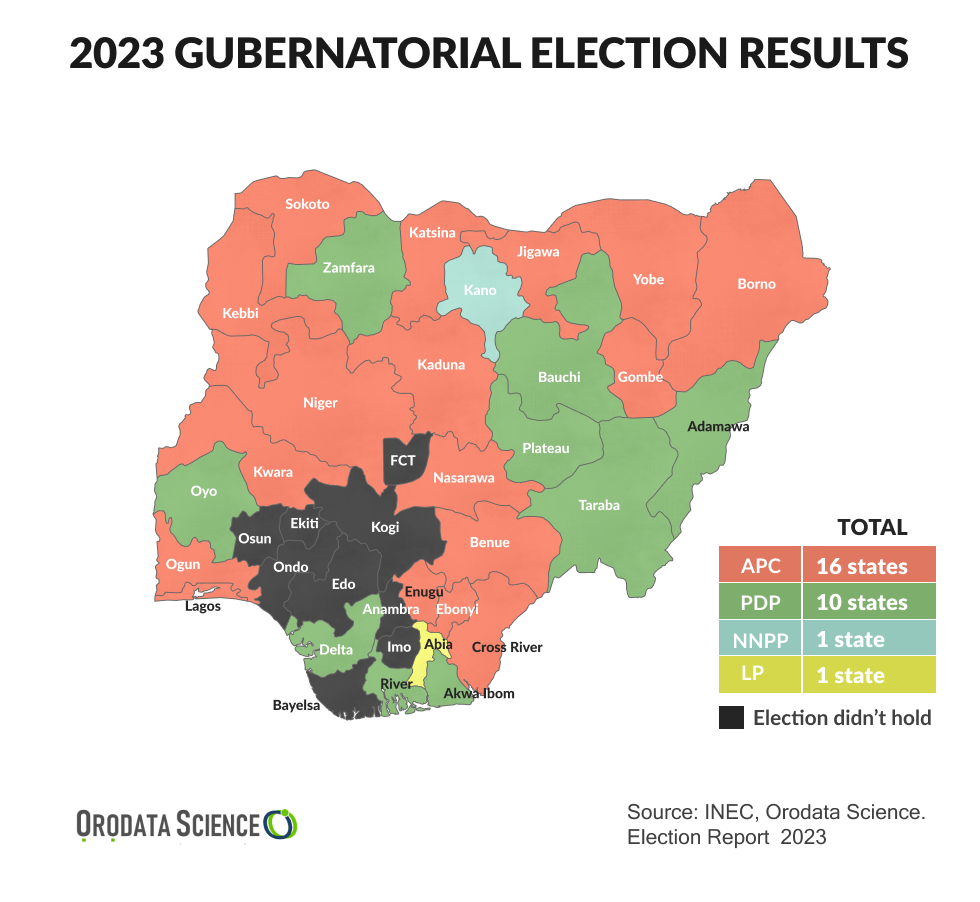Roused by the socio-economic indices which show that President Muhamadu Buhari’s administration failed in many areas, ordinary Nigerians are the loudest critics of this administration. From multiple protests to immense vituperation on social media, one might have been tempted to predict that it was time up for the ruling All Progressive Congress. But the APC did not only win the presidency, it went on to win the majority of states in the governorship elections across the federation.
Under the seven-plus years of the APC at the helm of affairs, Nigeria’s inflation rose from 9% in 2014 to 21.91% in February 2023, according to the Nigerian Bureau of Statistics. Although the International Monetary Fund argues that Nigeria’s inflation is higher than what is published by the NBS, stating that the index weights used by the agency for the monthly consumer price index are extremely outdated. Under this government, unemployment rose from less than 8 per cent in 2014 to 37.7 per cent in the last quarter of 2022. It is projected to rise above 40 per cent before 2024.
While Nigeria had been embroiled in terrorism since 2010, banditry, police brutality, farmer-herder clashes, separatist agitations and kidnapping joined the long list of bloodsucking demons under the APC. The wave of insecurity is unprecedented.
Although the APC boasts of heavy investment in infrastructure, which of course should improve human capital, it came at the cost of a huge debt burden, while the naira loses value against the dollar. As if the free fall of the country’s economy was not enough, the government worsened it with ill-informed and/or poorly implemented economic and monetary policies such as the land border closure, banning of imported goods and recently, currency redesign, among others. Tens of millions of Nigerians have become poorer in the last seven years of Buhari and the APC.
The ripple effect of all these? Increased emigration of young people, tagged ‘Japa-wave’; pulsating outrage and political consciousness among youths, as perceived on social media; and consequently a call for a new political order, or at least an eviction of the APC from the country’s political leadership.
The peak of the outrage against the APC was witnessed during the nationwide ENDSARS protests. The protests were triggered by overwhelming cases of brutality and extra-judicial killings perpetrated by the Special Anti-Robbery Squad unit of the Nigerian Police Force. The protests culminated in more brutality and killings of innocent protesters as well as Police officers. Apart from the creation of panels of inquiries in states, the Nigerian authorities continue to trivialize the lives lost during the protests.
In spite of the outrage observed in the months preceding the elections, and the evidently poor performance of the APC administration at the federal level, the party still triumphed over opposition parties in the presidential election as well as many state governorship elections.
In the presidential election, the APC candidate, Bola Tinubu, polled 8,794,726 votes to defeat his major opponents, Atiku Abubakar of the People’s Democratic Party who polled 6,984,520 votes and Labour Party’s Peter Obi who scored 6,101,533 votes.
Of the 28 states where governorship elections were held on March 18, APC emerged victorious in 16 states; PDP won 10, while Labour Party and the NNPP won one state each.


